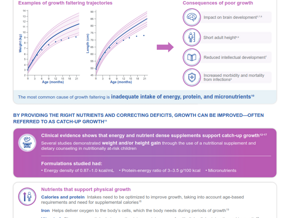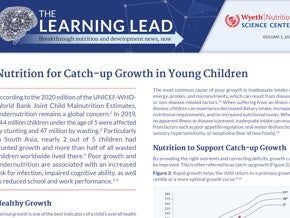
Maternal DHA supplementation and early preterm birth
Study design
- Randomized, multicenter, double-blinded, adaptive-design, superiority trial conducted in USA
Subjects and Intervention
1,100 women with singleton pregnancies and 12 to 20 weeks gestation were randomized into:
- 1,000 mg/day DHA group (n = 576)
- 200 mg/day DHA group (n = 524)
Outcomes
Primary
- Effect of DHA on early preterm birth
Secondary
- Preterm birth (<37 weeks)
- Maternal DHA status (red blood cell phospholipid DHA) at enrollment and delivery
- Neonate DHA status
- Very low birth weight (<1,500 g)
- Low birth weight (<2,500 g), etc.
Findings
1,000 mg/day group showed a lower rate of early preterm birth as compared with 200 mg/day group [1.7% (9/540) vs. 2.4% (12/492), pp = 0.81]
- Especially, if the women had low DHA status at enrollment [2.0% (5/249) vs. 4.1% (9/219), posterior probability (pp) = 0.93]
A dose effect was not noted among women with high DHA status (pp = 0.57)
- 1,000 mg/day: 1.4% (4/289)
- 200 mg/day: 1.1% (3/271)
The higher dose (1,000 mg/day) was associated with fewer serious adverse events (all pp > 0.90)
- Maternal: Chorioamnionitis, premature rupture of membranes and pyelonephritis
- Neonatal: Feeding, genitourinary and neurologic problems
Conclusion
- Clinicians could consider prescribing 1,000 mg/day DHA during pregnancy to reduce early preterm birth in women with low DHA status if screening for DHA status is possible
Link to publication:
https://www.thelancet.com/pdfs/journals/eclinm/PIIS2589-5370(21)00185-1.pdf
WYE-EM-078-MAY-21
Reference
Carlson SE et al. Higher dose docosahexaenoic acid supplementation during pregnancy and early preterm birth: A randomised, double-blind, adaptive-design superiority trial. EClinicalMedicine 2021. https://doi.org/10.1016/j.eclinm.2021.100905.
Other articles that you might be interested in:
If you liked this post you may also like



